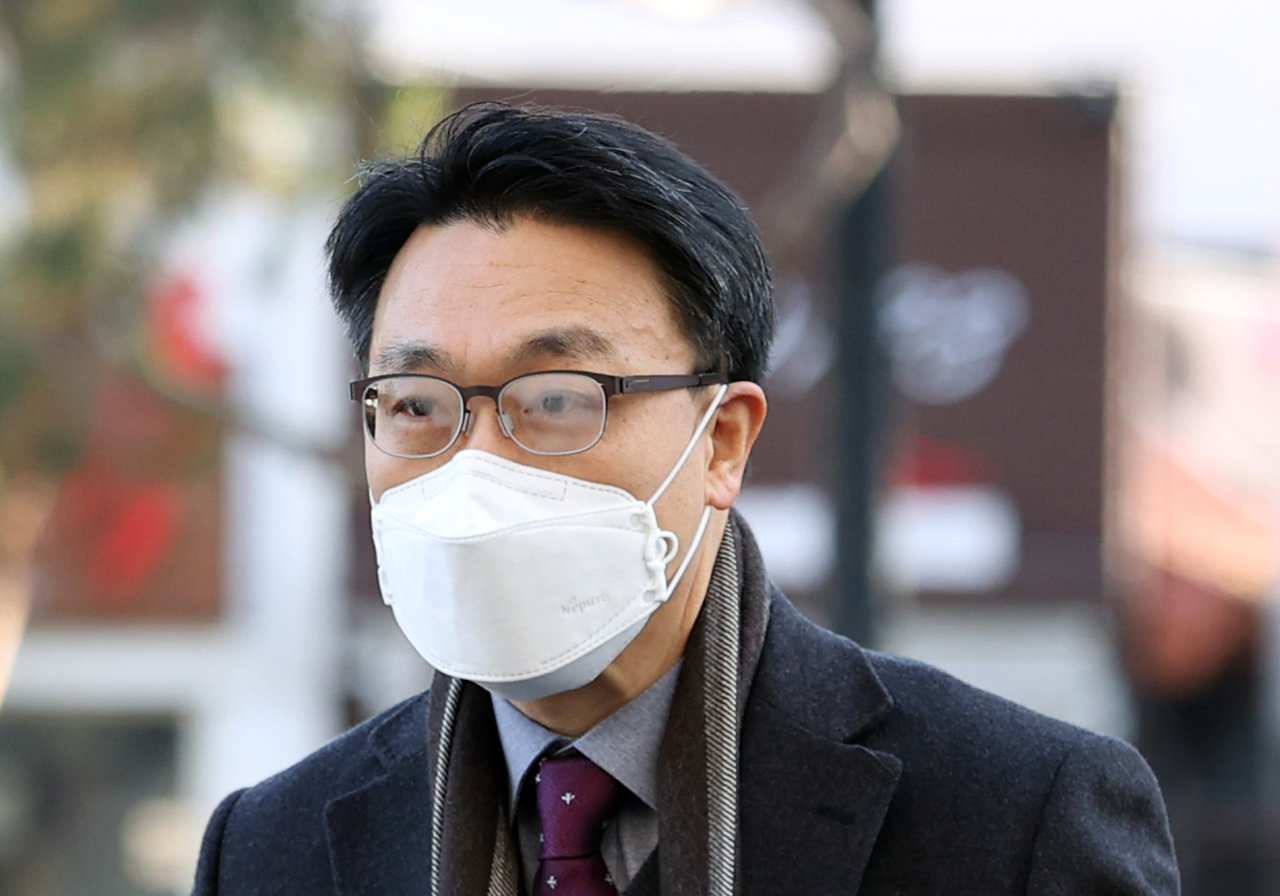President Moon Jae-in on Wednesday nominated a former judge to head the Corruption Investigation Office for High-ranking Officials, a new body handling corruption among senior government officials like prosecutors.
After the confirmation hearing report is passed at the National Assembly within 20 days, the new anti-corruption agency, key to the president’s prosecutorial reform, will finally kick off in the weeks to follow.
“I’m asking for support for the prompt launch of the Corruption Investigation Office for High-ranking Officials as the parliamentary hearing is held smoothly by act of law,” Moon was quoted as saying by Cheong Wa Dae spokesperson Kang Min-seok.
 |
Kim Jin-wook, nominee for chief of the Corruption Investigation Office for High-ranking Officials (Yonhap) |
A bill to set up the non-prosecution investigation body took effect in July, but its launch has been delayed as the rival parties failed to narrow their differences on the inaugural leadership. Aimed at expediting the nomination process, the ruling Democratic Party of Korea pushed ahead with a revision early this month to deprive the opposition of its veto power.
After six meetings of the seven-member nomination committee over the past months, two finalists – a former judge and a former prosecutor – were selected Monday with the consent of five members. Two members, representing the main opposition People Power Party, walked out of the meeting to boycott the nomination process.
Moon’s final pick Wednesday was the former judge, Kim Jin-wook.
Kim, 54, started his career as a judge at Seoul Central District Court in 1995, and after three years he joined the nation’s largest law firm Kim & Chang to work as a lawyer until 2010. Then he moved to the Constitutional Court, where he has been working as a senior researcher.
The ruling bloc claimed Kim, who has remained politically neutral throughout his career, is a befitting figure for the new post that requires complete neutrality and independence. But opposition parties who had preferred a prosecutor for the job lashed out at the nomination, citing procedural problems in the recommendation process.
Later in the day, Moon also announced three minister nominees in this year’s final Cabinet reshuffle – Rep. Park Beom-kye of the Democratic Party for justice minister, Rep. Han Jeoung-ae, also from the ruling party, for environment minister and Hwang Ki-chul, a chair professor at Kookmin University, for patriots and veterans affairs minister.
He accepted the resignation of Justice Minister Choo Mi-ae, who has been at odds with Prosecutor General Yoon Seok-youl over the past year.
Some political tensions will continue until the soft landing of the new anti-corruption body and over the confirmation hearings for the new ministers. But the planned launch of the CIO and Choo’s departure paved the way for the president to focus more on other hot-button issues like coronavirus vaccines and to win back public support.
“Prosecutorial reform is already an old issue for the public. Among other things, it is not a life-or-death issue. What they want to know the most is how much and how fast the first batch of coronavirus vaccines will arrive here,” said Shin Yul, a political science professor at Myongji University.
“If the president wishes to win back support from the public, he should better understand what is the urgent issue for the public and why the people are so angry at him.”
By Lee Ji-yoon (
jylee@heraldcorp.com)








![[Today’s K-pop] Blackpink’s Jennie, Lisa invited to Coachella as solo acts](http://res.heraldm.com/phpwas/restmb_idxmake.php?idx=644&simg=/content/image/2024/11/21/20241121050099_0.jpg)